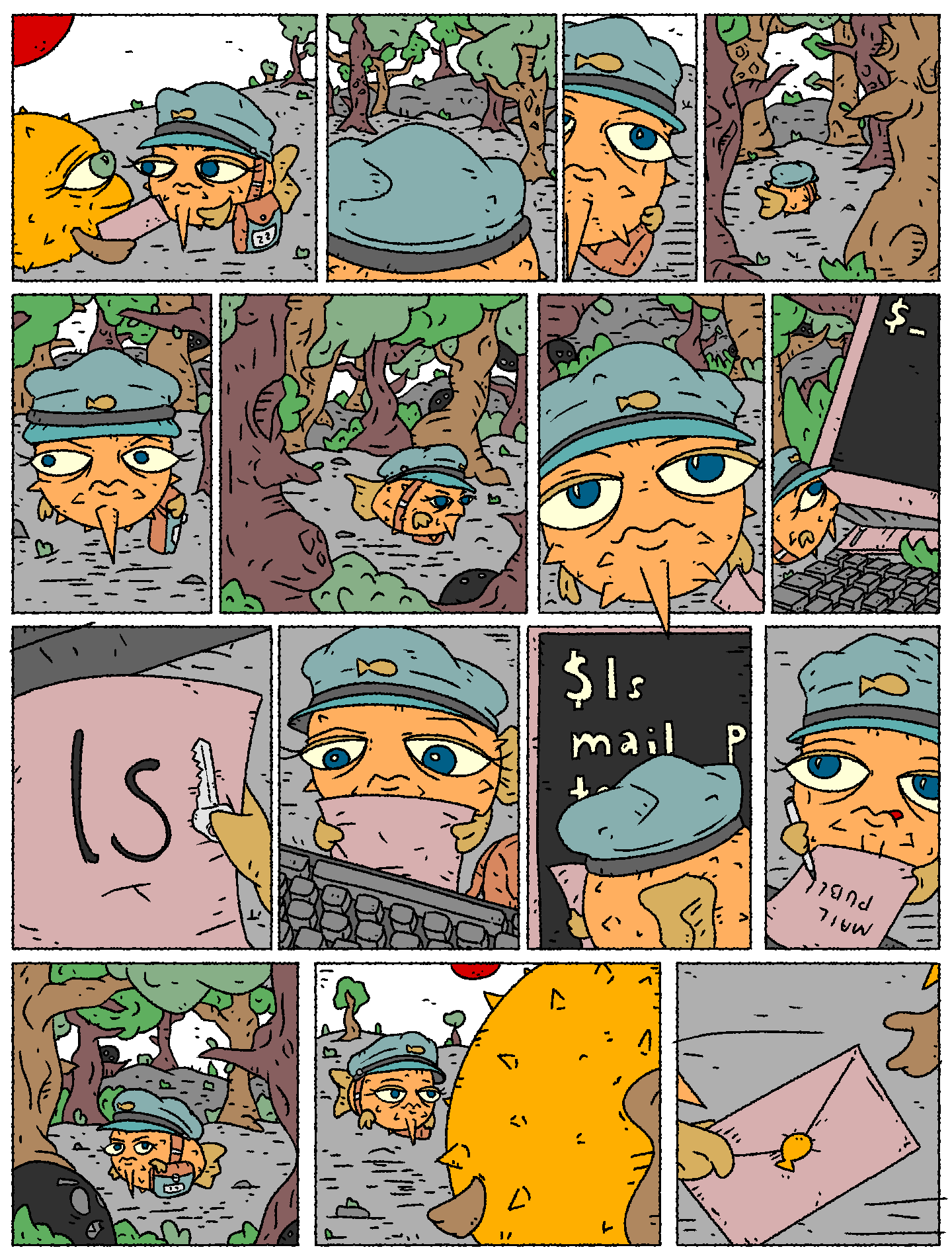Gemini Links 11/04/2025: Microcosmographia Academica and Ada Language
-
Gemini* and Gopher
-
Technology and Free Software
-
I am become the avenger 🦹
Well, it certainly looked like unsanitised input text, so I gave it a go. First attempt, I got all the currencies in the table, to my surprise and delight. Second attempt, I changed tha name of something else in another unrelated table. It was only a test system, but I felt deliciously naughty.
I fessed up to my colleagues, who thought that we should fix it. Well, maybe. It's not public-facing (or we'd have found out about it years ago). And as dodgy as this particular bit of code is, I bet there are dozens of other equivalent examples. For now, I'm content for you to know me as someone who has dabbled with the forces of darkness.
-
The sixth cookie
The folded note had a dot onion address, a hidden service inside the Tor network. Good thing I brought my laptop. I opened my backpack and pulled it up, just to face an already awakened PC with an open Tor Browser window within my VM setup, connected to a hidden Wi-Fi without SSID, a network I never set up before. Extremely weird and chilling, but I proceeded to find out what the fortune's hidden service is about. As soon as I pressed enter, Pidgin popped up establishing an IRC connection. NickServ authenticated some user to my session, a user named "TheSixthCookie". Huh, I haven't read the sixth cookie yet... But as soon as I realized that there was no sixth cookie, the waiter arrived: [...]
-
Internet/Gemini
-
Microcosmographia Academica on Gemini
As another step in establishing a long-term archive of good texts on Gemini, I've converted F.M. Cornford's classic "Microcosmographia Academica" to Gemini text.
-
DNS was the problem
Last time I was lamenting the problem with running Agate on my Raspberry Pi Zero 2W and not understanding how such a low-resource server and protocol were struggling to serve Gemini content even from within my local network. It turns out, the problem was DNS.
-
-
Programming
-
Ada
I mentioned in a previous post that the Ada language and Gnat compiler added some very interesting features lately, like good ARM64 support and (for the SPARK subset) dependent typing. I live in Europe, which has definitely underemphasised military defense but that may change, and this post has a Franco-British bias, e.g. for companies. I studied Ada83 a long time ago in college, so decided to see what had changed in the intervening decades.
In case anyone is wondering, "why Ada", back in the 1980s it was a requirement for US DoD projects. That mandate was rescinded, but it's still specified by NATO STANAG (Standardisation Agreement) 3912 for avionics systems. Although it might have started in the US, a major compiler vendor now is French, and it has been taught in a lot of European universities. And I personally think it is a fine choice even outside its traditional domain. I've heard this "traditional domain" sometimes euphemised as "life-critical systems", where it's absolutely required to save (or take) a human life.
So since 1983 there have been several language revisions, the latest version is from 2022. A lot has changed, but the foundation was solid to begin with which helps a lot. Salient additions I noticed are object-orientation, a container class library (and many others), and something I'm interested in, a subset called SPARK that supports static analysis using theorem provers.
-
-
-
* Gemini (Primer) links can be opened using Gemini software. It's like the World Wide Web but a lot lighter.

